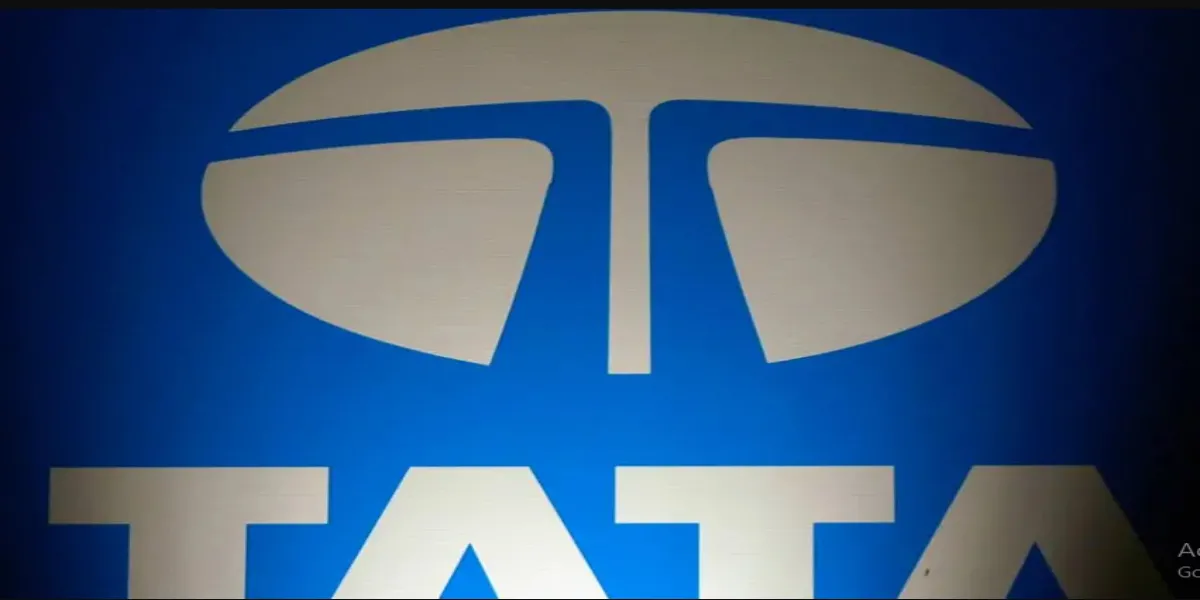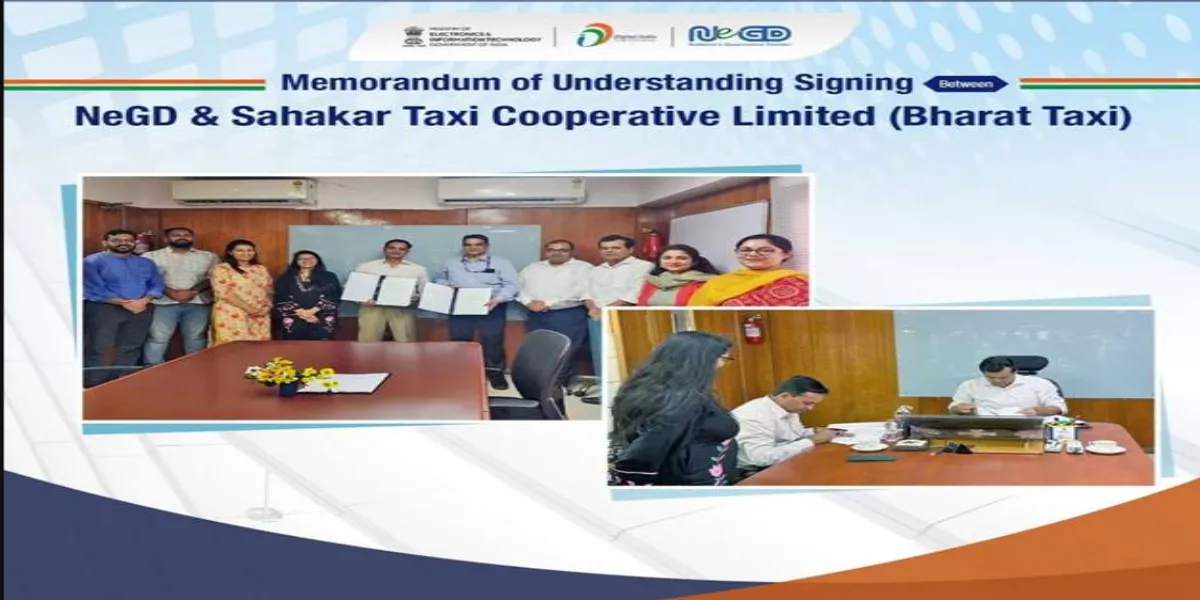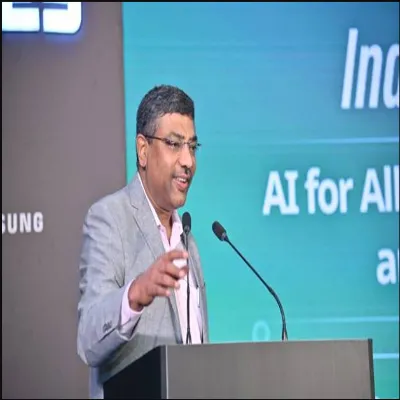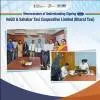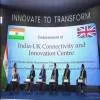This year’s theme for World Environment Day is ‘Reimagine. Recreate. Restore.’ -- which rightfully urges our generation to rebuild our ecosystems. The day emphasises on how holistic restoration of the planet can be achieved through conscious and continuous actions to fight the climate crises. Hence, the paramount importance of implementing innovative solutions backed by technology that will allow organisations to recycle, manage, distribute and consume water efficiently cannot be overlooked.

Says George Rajkumar, Country President, Grundfos India, “Our natural ecosystems in India have been adversely affected due to excessive exploitation, pollution, neglect and climate change. It is critical that we restore our natural ecosystems as they can not only have harmful effects on the planet, but our lives as well. Water is an intrinsic part of most ecosystems, and this World Environment Day, it is critical for us to take some decisive actions to focus on replenishing our water sources to help our ecosystems recover and rejuvenate. We need to collaborate with all relevant stakeholders and look at a holistic approach to managing our water and in turn our ecosystems. We can have tangible results here by combining traditional knowledge with practical policies at the grassroot level and the adoption of sustainable technology and solutions.”

Neeraj Akhoury, CEO India, LafargeHolcim, and Managing Director and CEO of Ambuja Cements Ltd, says, “Both Ambuja Cement and ACC are aligned with their global parent LafargeHolcim Net Zero plan and sustainability strategy. Sustainability is one of the strategic priorities for both companies. ACC and Ambuja’s Sustainable Development Plan 2030 has a sharp focus on climate and energy, building a circular economy, conserving resources and nature, and driving meaningful change in the lives of communities. Both the companies aim to reduce their CO2 footprint, reuse waste and be many times water positive.
We have been implementing a whole range of initiatives such as building a circular economy which includes setting up waste heat recovery systems and recycling plastic waste into new energy sources to partly replace fossil fuel. Both companies are today water positive through our sustained efforts over the years.
We have also pioneered the use of bio-fuel in our captive cement transporting ships, which successfully completed the trial runs earlier this year. Our Geocycle brand provides safe waste management solutions by co-processing alternative fuels and raw materials in the cement manufacturing process, thereby conserving traditional fuels and raw materials. ACC and Ambuja Cements are well-positioned in terms of access to technology, knowledge/skills, leadership and capital that will be needed to create a more sustainable future in terms of products, processes and their impact on the environment as a whole. We aim to become the most environment-friendly and sustainable building solutions providers in India.”

Adds Ravichandran Purushothaman, President, Danfoss India, “2020 saw an increasing global movement in terms of focusing investments on rebuilding economies in a sustainable way and, in doing so, keeping emissions lower while promoting growth. For India to emerge as an economic powerhouse, the move towards building a net-zero economy needs to be accelerated.
As energy intensity continues to remain the biggest area of concern, the policy and industry ecosystem need to be aligned on a long-term action plan to counter the disastrous effects of climate change. We should create a cycle where bold business commitments support bold policies – in turn, supporting even bolder business action.
The need of the hour is for global megatrends such as digitalisation, electrification and industrialisation to evolve in its approach towards sustainability. To enable this, companies should work towards a sustainable transformation by setting up science-based targets and striving to emerge as ESG role model companies for the future. This will in-turn power a green restart and speed-up a sustainable transition for a better tomorrow.”

Vinamra Srivastava, CEO, Business Parks, CapitaLand India, adds, “At CapitaLand, we place sustainability at the core of everything we do. The group has launched its 2030 Sustainability Master Plan, a strategic blueprint which outlines our ambitious sustainable goals, strategies and plans for the next decade.
We integrate sustainability into every stage of our real estate life-cycle, from investment to design, development and operations. We have 29 green buildings across India and have adopted various measures to reduce our carbon footprint including reducing energy and water intensities, zero-wastage, reducing single-use plastic, use of onsite and offsite solar energy and other tech-driven energy efficiency initiatives. We have also raised Rs 1,700 crore through sustainable financing to develop green-certified buildings.
The recently unveiled CapitaLand Sustainability X Challenge will provide a platform for six greentech startup finalists to pilot their sustainable innovations at CapitaLand properties and we are excited to assess how few of these projects can be implemented in our rapidly growing portfolio in India.”

Avers Satyakam Arya, MD & CEO, Daimler India Commercial Vehicles, “At DICV, we are dedicated to fostering a more sustainable future, envisioning a world free of harmful emissions. With the vision of “Reduce, Recycle and Reuse”, DICV’s sustainable efforts have been successful in achieving three key green production targets in the span of just four years. Our recycling ratio has improved to 99% with the use of 80% renewable energy in our manufacturing facility and we have reduced our water consumption by 20%. In addition, we have achieved six months of 100% renewable energy at our Oragadam plant in the last two years.
DICV’s robust set of innovative and impactful sustainable initiatives address every aspect of our operational interaction with resources. Some of the key areas of our focus include maintaining the ground water level, re-using hazardous waste as an alternative fuel, reducing absolute energy consumption and focusing on how our products use environmentally friendly materials. Along with rigorous training for our employees to implement these initiatives, our suppliers also play a crucial role in making our sustainability efforts more successful. We are bullish in our commitment and approach to deliver a more sustainable and equitable future."
For Embassy Office Parks REIT, in lieu of the theme of World Environment Day 2021, ‘Ecosystem Restoration’ Embassy REIT is working towards its commitment for environment sustainability and has undertaken various activities aimed at restoring the environment.
Among its latest projects is the Ecological Restoration in the area around Embassy Manyata Business Park in Bengaluru. Embassy REIT has partnered with TAICT (The Anonymous Indian Charitable Trust) undertaking an initiative to build a holistic solution for stormwater management. The project is estimated to be completed in two months. The REIT will work on identifying and communicating with communities in the area to promote ecological restoration, investigate dumping of garbage/debris with adoptable solutions, propose solutions for water Hyacinth management, validate feasibility of wetlands and recharge pits and identify employee engagement for Embassy REIT and its tenants.
Embassy REIT has also undertaken a special initiative ‘The EcoGram Project’, in Bettahalasur Panchayat, North Bengaluru along with TAICT (The Anonymous Indian Charitable Trust). The two month long project focuses on creating a Gram Panchayat model by building processes and infrastructure for sustainable decentralized waste management, soil quality and water conservation in Bengaluru.
Embassy REIT has also got on board FICCI for a Water Conservation Study at two properties in Mumbai Embassy 247 in Vikhroli and Express Towers, Nariman Point. The study will focus on strategies and measures needed to reduce water consumption at these properties by 10 % over the next 3 years and will instill the habit of ecosystem restoration.
Focus on Renewable Energy: As part of its commitment to adopt renewable energy, Embassy REIT is installing rooftop solar plants in its eight campuses spread across three in Bangalore, three in Pune and two in Noida. The power generated from these solar plants will cover 65% common area consumption from rooftop across the portfolio in addition to the existing solar plant. Apart from being commercially viable this installation will be equivalent to planting more than 10 lakh teak wood trees & mitigation of 7.25 lakh tonnes of C02 emissions.
It has also helped 10 government schools in Bengaluru by equipping them with Solar Powered Electrification, allowing access to interrupted power supply in their area. On World Environment Day, Embassy REIT will provide 16 solar street lights for a school of differently abled children in Marunji, Pune.
Embassy REIT will also be conducting Tree Plantation Drive along with participation from key occupiers by planting 112 trees in Pune which will give 13 tons of oxygen per year, and 1,300 trees in Noida which will give 70 tons of oxygen per year.
Image source

